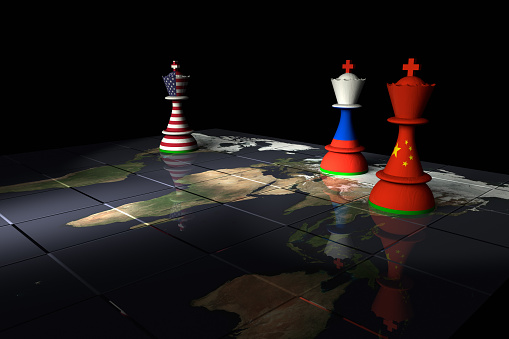
David Shambaugh, Gaston Sigur Professor and Director of China Policy Program at George Washington University, Distinguished Visiting Fellow at Hoover Institution of Stanford University
Mar 30, 2022
As the global community turns against an increasingly isolated Russia, China’s silence on the topic becomes more easily interpreted as support for Putin’s war. The untenable stance will be sure to drive more friction between the West and China and puts China’s foreign interests in further jeopardy.
Leonardo Dinic, Advisor to the CroAsia Institute
Jul 22, 2021
Rhetoric at NATO’s recent summit intensified the U.S.-China rivalry in global affairs. Now that the U.S. is in competition with China, will NATO member states follow suit?
Apr 03, 2019
Ministers meeting in Washington are set to discuss perceived security challenges from Beijing.
Zhou Bo, Senior Fellow, Center for International Security and Strategy, Tsinghua University
Dec 19, 2016
If the Shanghai Cooperation Organization (SCO) accepted Turkey as a member state, that could serve to improve the NATO-Russian relationship, further promote SCO economic integration, and add strength in counteracting terrorism, separatism and extremism, the primary goals of SCO. Russian suspicions of Turkey, however, pose one of several challenges to the idea.
Zhou Bo, Senior Fellow, Center for International Security and Strategy, Tsinghua University
Feb 18, 2016
Given the importance of both China and NATO, it is inconceivable that China and NATO don’t interact. Counter-piracy in the Gulf of Aden shows how both sides can work together to provide common security to the world.
Richard Weitz, Senior Fellow, Hudson Institute
Nov 06, 2013
The decision of the Turkish government to purchase its first long-range air and missile defense system from a Chinese corporation rather than competing U.S., European, and Russian systems has aroused much attention. However, this decision is unsurprising given Ankara’s longstanding desire to gain as much foreign defense technology as possible for the lowest cost.
Zhao Weibin, Researcher, PLA Academy of Military Science
Oct 16, 2013
Following United States military intervention in Afghanistan, Iraq and Libya, Zhao Weibin lays out four reasons why the Obama administration is unlikely to undertake military action in Syria against Bashar al-Assad.
Wu Zurong, Research Fellow, China Foundation for Int'l Studies
Oct 08, 2013
The US should help NATO countries work together with countries in the East for the benefit of world peace, writes Wu Zurong. Whether to sow discord and create new divisions between the East and the West, or to increase mutual understanding and cooperation between them is a serious test.
Richard Weitz, Senior Fellow, Hudson Institute
Mar 25, 2013
As US and NATO forces prepare to withdraw from Afghanistan in 2014, Washington must carefully examine the strategic power vacuum that will be left in its void. Given China’s increasing influence in Central Asia, US policy makers must be cognizant of its recommendations for managing the region and enlist China’s assistance to implement them.
Richard Weitz, Senior Fellow, Hudson Institute
Jan 28, 2013
Richard Weitz outlines the decision to send NATO missile defense systems to Turkey, and the opportunity for Chinese-American cooperation in a post-Assad Syria.